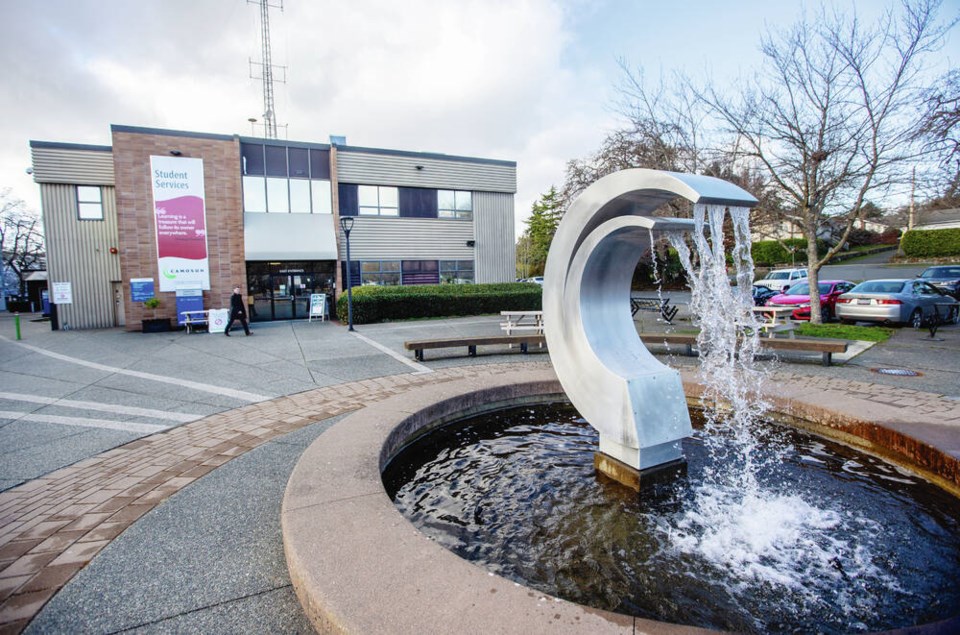“If you are not moving forward, you are moving backward.” Variations of this advice have been applied to everything from large organizations like the Ford Motor Company with its new hybrid and electric vehicles to John Wooden, the American basketball coach and player whose coaching philosophy was: “If we fail to adapt, we fail to move forward.”
That’s why it’s encouraging to see post-secondary institutions like Camosun College and North Island College moving into offering microcredentials, some of which run only eight hours, although others take longer.
Microcredentials — short courses designed to quickly teach new skills or, more importantly upgrade existing ones — have long been offered by colleges, but the pandemic has interrupted or redirected the career paths of many Canadians who thought their jobs were safe on high ground, untouchable by the tsunami of needs and changes flooding the 2021 job market.
Colleges are well-positioned when it comes to developing microcredential courses, and tend to maintain a closer relationship with the needs of industry and to adapt their courses as those needs evolve.
Camosun College, for example, offers a variety of microcredential courses under its Clean Energy, Efficient Building program, with courses ranging from 18 to 33 hours.
Camosun partnered with Passive House of Canada to develop its efficient building courses, including how to design and implement photovoltaic (solar) energy systems and how to build highly insulated, efficient residential buildings.
North Island, as part of its Motion Picture Production Assistant program, offers microcredentials covering general workplace safety and protocols within the rapidly expanding VI motion picture industry.
Course designers like to point out that Quentin Tarantino’s first job was as a production assistant on an exercise video.
Denise Amyot, president and CEO of Colleges and Institutes Canada, was recently quoted as saying “I don’t think a week has gone by recently when I haven’t heard of a college developing a new microcredential, and this is largely a response to the labour market.”
That’s not to discredit the forward planning of universities like Victoria’s Royal Roads, which offers professional and Continuing Studies standalone microcredentials, ranging from the development of project leadership in a digital environment to mineral exploration and environmental management as the province moves toward the low-carbon age.
But there is more to the microcredential idea than being in lockstep with industry needs.
In November of last year, one in four Canadians was considering a career change, according to the LifeWorks monthly Mental Health Index, which measures the mental health of employees during COVID across Canada.
According to Stats Canada, students graduating from high school in 2022 will face as many as three or four career changes in a lifetime. Microcredential courses offer the opportunity to sample options even within a previously chosen career path.
For university graduates these days, a chosen major isn’t a commitment to a permanent, life-long career.
In fact, college and university qualifications tend, these days, to be more of a tentative first few steps out of the career starting gate.
A business degree, for example, involves dissecting business problems and recommending solutions, and helps business majors to enhance their critical thinking and analytical skills. Graduates learn to use information-technology tools to gather, organize and represent data for presentations and papers.
Those skills may prepare students for a career in accountancy, which may, in turn, lead to management consultancy careers or a wider variety of financial analytical responsibilities in evaluating companies, industries and associated investments for clients.
A degree in health sciences in the time of COVID provides a wide-open field of career opportunities.
Any career in 2021 will require flexible thinking and the ability to move forward while improving and learning new skills lest years of experience become an anchor to career progress.
Workers are increasingly becoming what has been described as whole-career learners, who continuously add skills toward promotions or career pivots.
That’s where microcredential courses are making a difference.
The “stackability” of some micro-credentials allows learners to keep building on the skills they’ve acquired.
Some “stackable” credentials are also portable: Students can earn certification at one institution and take it to another for credit toward a bigger goal — a degree completion for example.
As Brian Tracy, motivational speaker and author of over 80 books on self-development, explains: “Those people who develop the ability to continuously acquire new and better forms of knowledge that they can apply to their work and to their lives will be the movers and shakers in our society for the indefinite future.”
gfjohnson4@shaw.ca
Geoff Johnson is a former superintendent of schools.



